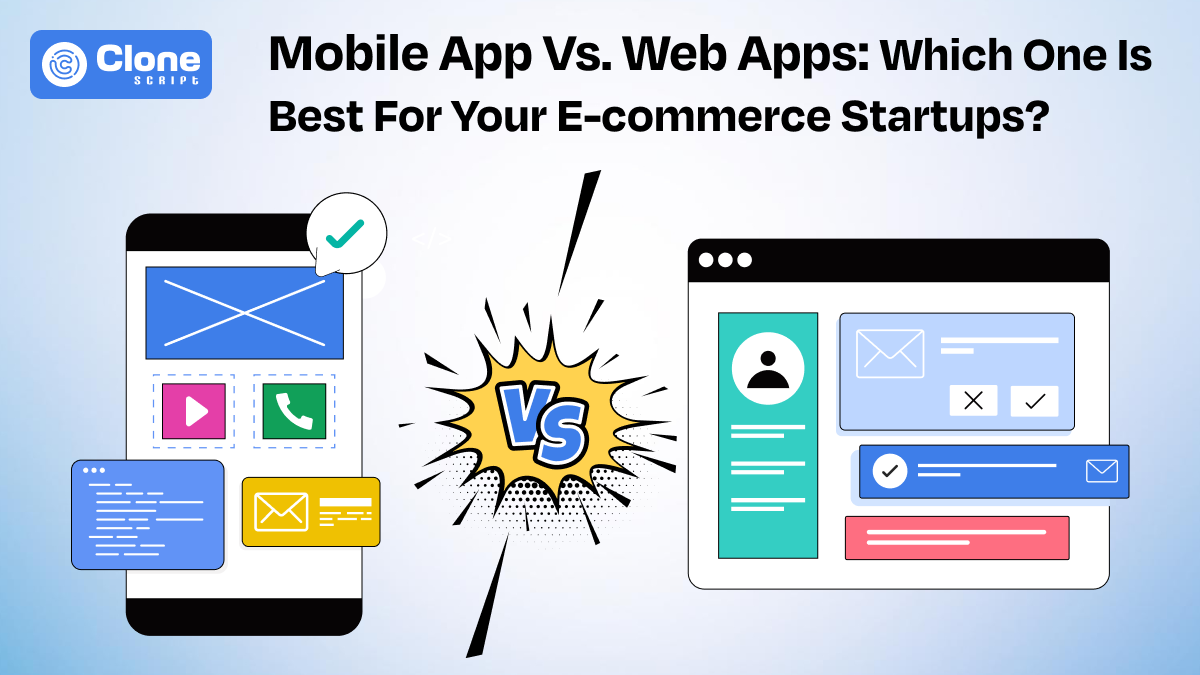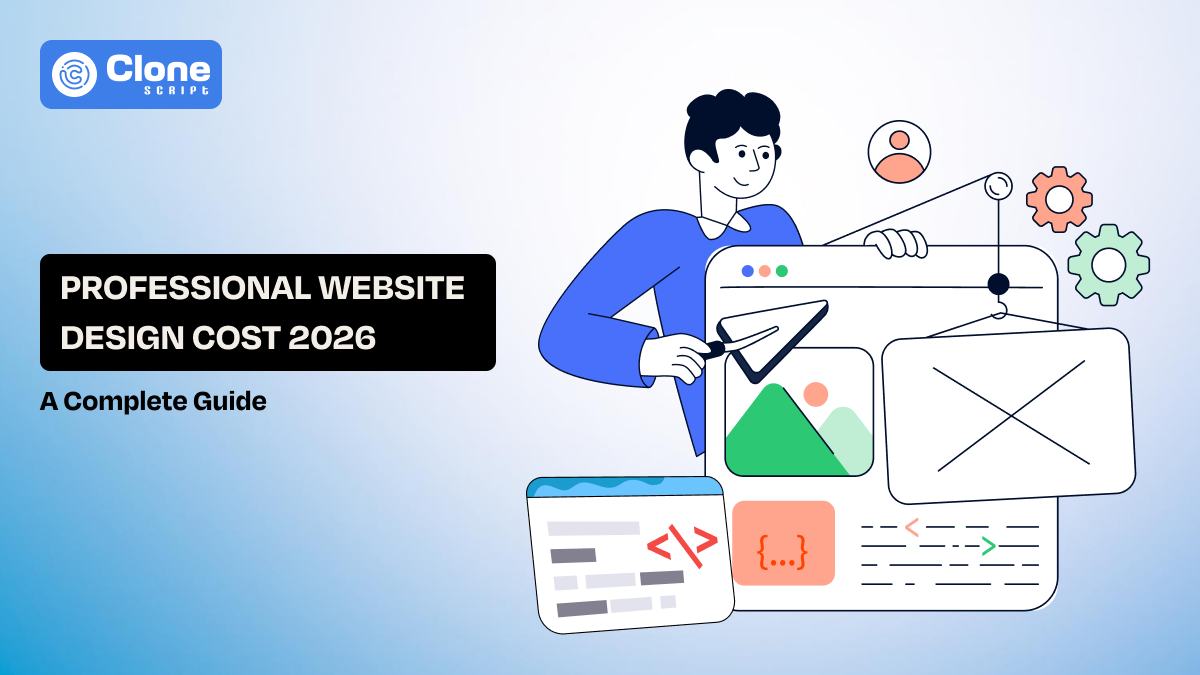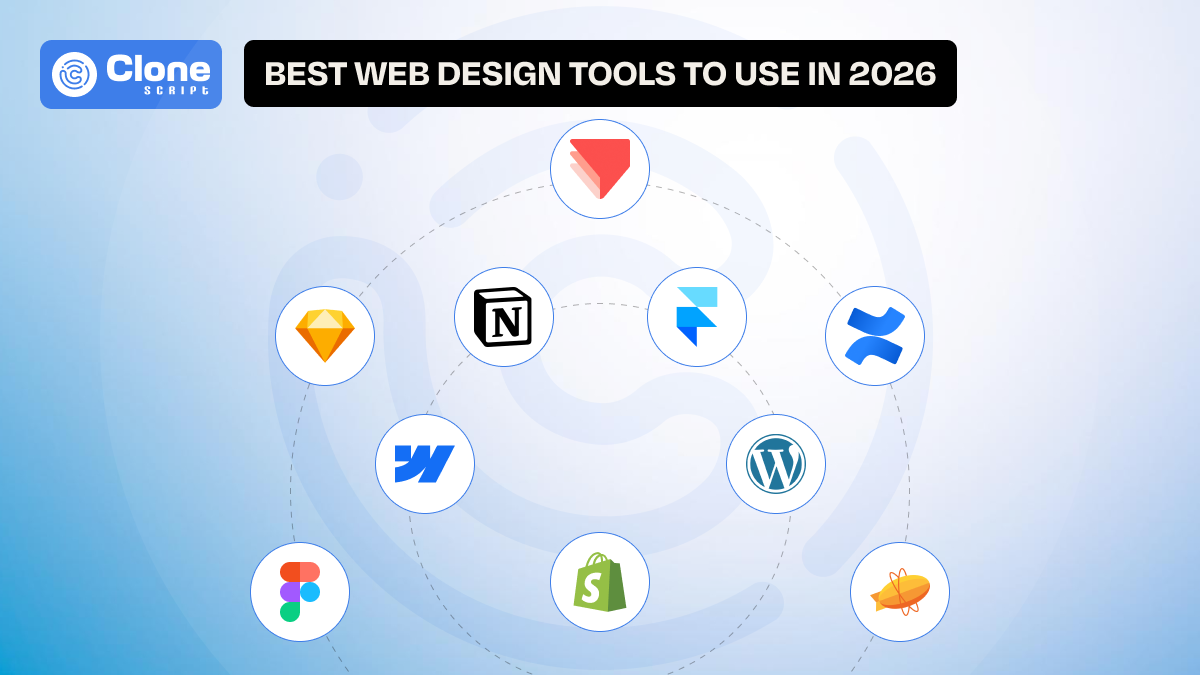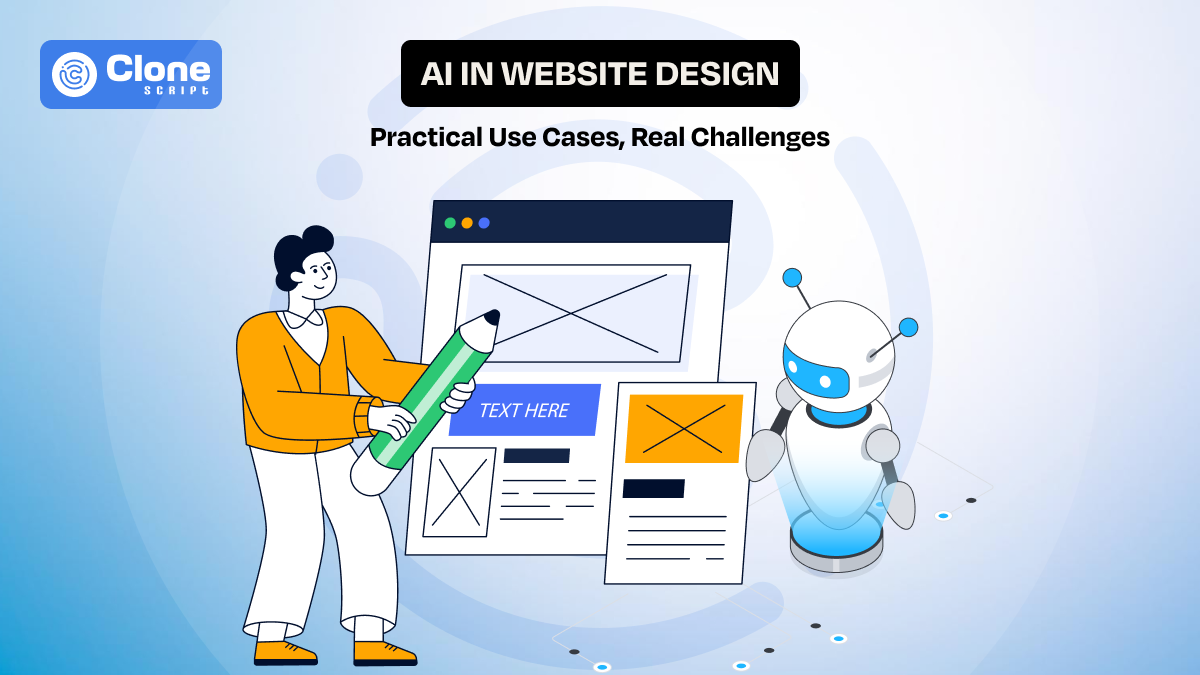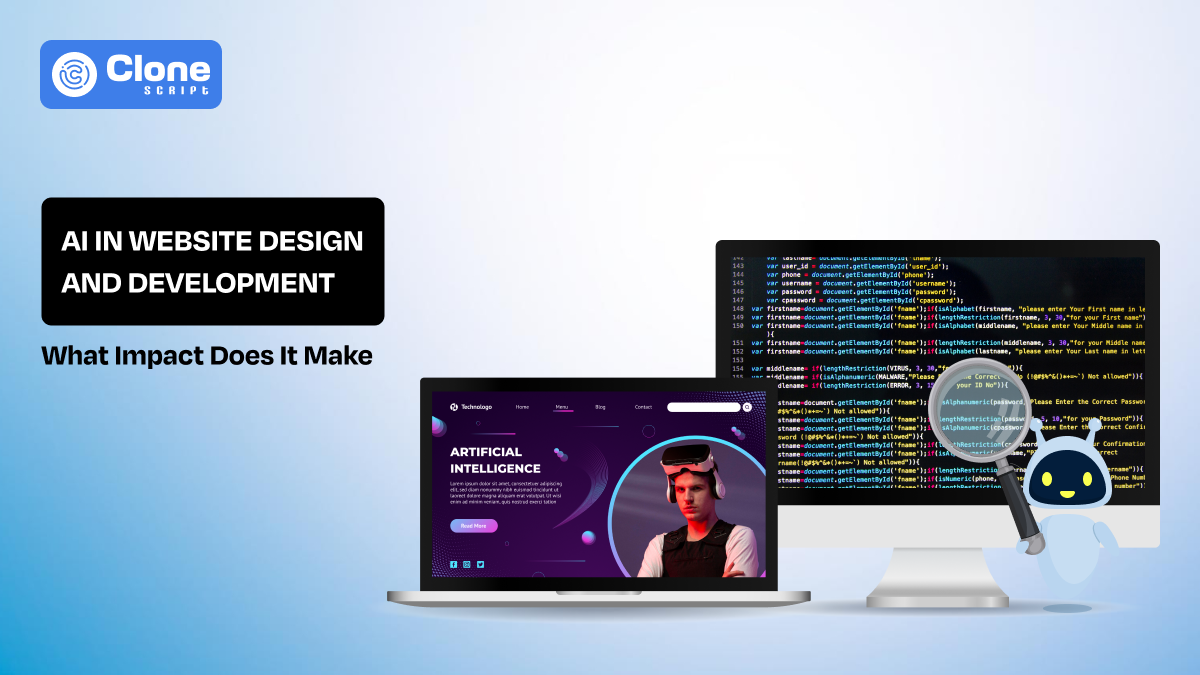Mobile App Vs. Web App: Which One Is Best For Your E-commerce Startups
In today’s digital era, e-commerce startups face a critical decision when expanding their online store: Should they invest in a mobile app for e-commerce or a web app for e-commerce? Both options offer unique advantages, but choosing the right one can significantly impact the growth and success of your e-commerce business.
As an e-commerce entrepreneur, understanding the differences between mobile apps and web apps and how each aligns with your business goals is essential for making an informed decision.
In this article, we’ll explore the pros and cons of mobile apps and web apps for e-commerce startups, weigh their costs and benefits, and help you determine which is the best fit for your business.
What Is a Mobile App?
A mobile app is a software application designed to run on smartphones and tablets. These apps are downloaded from app stores (such as Google Play or Apple’s App Store) and installed directly on users' devices. E-commerce mobile apps are typically written in languages like Swift for iOS and Kotlin or Java for Android.
What Is a Web App?
A web app is an application that runs directly in a web browser, whether on mobile devices or desktop computers.
Unlike mobile apps, web apps do not require installation. They are responsive and adapt to various screen sizes, offering a seamless user experience across platforms. Web applications for e-commerce startups are usually developed using standard web technologies like HTML, CSS, and JavaScript.
After understanding the definitions of mobile and web apps, let’s explore how they differ from each other.
Key Differences Between Mobile Applications and Web Applications for E-commerce Startups
When deciding between a mobile app and a web app for your e-commerce startup, it’s important to recognize the key differences between the two:
1. Installation and Accessibility
-
Mobile Apps for E-commerce:
These apps must be downloaded and installed from app stores. This means users need to take the extra step of finding your app, installing it, and allowing storage space on their devices.
-
Web Apps:
Web applications are accessible via any browser (e.g. Chrome, Edge, Safari, Yandex), with no need for installation. Users simply navigate to the URL, making it easier to engage with your online store without barriers.
2. Performance
-
Mobile Applications:
Typically offer better performance because they are designed to leverage the native functionality of the smartphone or tablet. This means faster load times and smoother user experiences, especially for tasks that require heavy graphics or intensive data processing, such as an e-commerce mobile app.
-
Web Applications for E-commerce:
While modern web apps have become faster, they often can’t match the speed and performance of a well-built mobile app due to their dependency on browser capabilities. Keep note of this.
3. Offline Functionality
-
Mobile Apps:
These applications can function offline or in limited connectivity environments, depending on how they are built. This is a major advantage if your e-commerce business requires an uninterrupted user experience, such as for customer browsing or secure checkout.
-
Web Apps:
Preferring web applications requires an active internet connection to function. However, advances in Progressive Web Apps (PWA) technology are narrowing this gap, as PWAs can cache certain features for offline use.
4. User Experience
-
Mobile Apps:
These applications offer a more immersive and personalized user experience. They can leverage device-specific features such as GPS, push notifications, and camera integration, enhancing mobile commerce and driving conversions for e-commerce startups.
-
Web Apps:
Web applications provide a consistent experience across devices without the need for separate versions for Android or iOS. They are typically easier to update since there’s no need to push updates to app stores. However, they may not deliver the same level of personalized interaction as a mobile app.
5. Development Costs
-
Mobile Apps for E-commerce:
Developing a mobile app can be costly, especially if you want to build versions for both Android and iOS. The ideal range of the mobile app development cost is between $30k to $400k (including front-end and backend), depending on your custom requirements. Also, each platform requires different coding languages, and ongoing updates and maintenance increase the total cost of ownership.
-
Web Apps:
The development cost of web applications remains between $10k to $100k, making it a more budget-friendly option for startups with limited resources. However, startups often face the challenge of optimizing web apps for mobile responsiveness and performance, which may require additional investment to ensure a seamless user experience across all devices.
6. App Store Presence
-
Mobile Apps:
One of the major benefits of mobile apps is their presence in app stores, which can lead to increased discoverability. Being listed in the App Store or Google Play Store can help build credibility and attract new customers to your e-commerce platform.
-
Web Apps:
Web applications don’t have the same exposure through app stores. You’ll need to focus more on search engine optimization (SEO) and online marketing to drive traffic to your web app. There’s no need for the app store presence.
Advantages of Mobile Apps for E-commerce Startups
-
Enhanced User Engagement
Mobile apps allow for higher levels of user engagement through push notifications. These alerts can be tailored to inform customers about promotions, cart reminders, or new arrivals—perfect for increasing retention rates in e-commerce. According to a study, businesses using mobile apps see a 30% increase in customer retention."
-
Personalized Shopping Experiences
Mobile apps can track user behavior and preferences. This allows for personalized product recommendations, discounts, and promotions, leading to more targeted marketing and higher conversion rates for your online store.
-
Offline Capabilities
The ability to browse products or make purchases offline (to a certain extent) makes mobile apps more convenient for users who may not always have reliable internet access.
-
Better Performance
Mobile apps for e-commerce are typically faster than web apps, offering a smoother and more reliable shopping experience, which is especially important for e-commerce businesses during peak traffic times.
Advantages of Web Apps for E-commerce Startups
-
Lower Development and Maintenance Costs
Web applications can significantly reduce upfront costs since they only require one version, unlike mobile apps, which need separate versions for iOS and Android. Maintenance is also easier and more cost-effective since updates only need to be applied to the web app server.
-
Wider Reach
A web app can be accessed on any device with a browser, whether it’s a desktop, tablet, or smartphone. This flexibility allows e-commerce startups to reach a broader audience without the need to build and maintain multiple app versions.
-
No App Store Restrictions
Unlike mobile apps, web apps aren’t subject to app store guidelines and approval processes, allowing for quicker updates and more freedom in design and functionality.
-
SEO Benefits
Web apps can be optimized for search engines, driving organic traffic to your platform through relevant keywords, including e-commerce product listings and blog content. Mobile apps, while visible in app stores, do not offer the same SEO advantages.
Cons of Mobile Apps and Web Apps to Consider
Apart from the pros, you have to know the cons of mobile apps and web apps too for making important decisions without affecting your startup objectives. Here’s the difference you have to understand.
| Aspect | Mobile Apps | Web Apps |
| Development Costs |
Higher costs due to separate development for iOS and Android platforms. |
Lower development costs but may require optimization for various browsers. |
| Time to Market |
Longer development and approval process (app store approvals take time). |
Quicker to develop and launch since there's no app store approval required. |
| Maintenance |
Regular updates must be pushed through app stores, requiring user downloads. |
Easier maintenance with updates deployed instantly via the web. |
| Compatibility Issues |
Requires separate versions for different operating systems (iOS, Android). |
Web apps may face compatibility issues across different browsers and devices. |
| Storage Requirements |
Occupies storage space on users’ devices, which may deter users from downloading. |
Does not require storage space on users' devices, only needs internet access. No offline functionality exists anymore. |
Having explored the advantages and disadvantages of both mobile and web applications, it's time to determine which option best aligns with your startup's goals and resources.
Which Option Is Best for Your E-commerce Startup?
Choosing between a mobile app and a web app depends largely on your specific business needs, budget, and growth strategy.
Here below we describe the circumstances to decide when the web application is helpful and why you have to prefer the mobile app.
| Mobile Apps | Web Apps |
|
Enhanced user engagement |
Budget constraints |
|
Offline access needed |
Reaching a broader audience |
|
Leveraging competitive edge |
Faster time to market |
|
Advanced features and performance |
SEO and organic traffic focus |
|
Building strong brand loyalty |
Ease of updates and maintenance |
|
Optimized for a mobile-first experience |
No app store limitations |
|
Best for targeted marketing |
Less user device dependency |
|
Fully scalable and futuristic |
Need a redevelopment |
All Clone Script Solution for your E-commerce Startup
As you’re now aware of the basics of mobile and web apps with a complete understanding of their pros and cons, you need to partner with the app development company.
All Clone Script is the best company to help you stand out in the e-commerce market and deliver an unforgettable experience to manage your business with ease.
Whether you need only an e-commerce web app that runs online on browsers through any device, we can do that effectively. Other side, if you like to have a dedicated branded mobile app that triggers sales and drives success, we also have that option.
Most importantly we develop a futuristic application that helps you to manage your business at your fingertips and removes the barriers that you find in traditional business operations. From app designing to post-launch we cover each phase of app development.
We emphasize modern cutting-edge technologies with the best functionalities such as:
-
Artificial Intelligence (AI)
-
Machine Learning (ML)
-
Natural Language Processing (NLP)
-
Virtual Reality (VR) and Augmented Reality (AR) Experience
-
Voice-based search
-
Cryptocurrency enable payments
So, don’t wait for any moment. Contact us today and let’s discuss how we can deliver the wings to your e-commerce startups to achieve the expected success.
See Ready-made Mobile Applications
Conclusion: Choosing the Right Solution for Your E-commerce Startup
Both mobile apps and web apps offer unique advantages for e-commerce startups, but the right choice depends on your business goals, target audience, and budget.
-
If you’re aiming for enhanced user engagement, personalized experiences, and offline functionality, a mobile app might be the best fit to create a more tailored shopping experience.
-
On the other hand, if your startup needs a cost-effective solution with faster deployment and cross-platform compatibility, a web app could be the better option to kickstart your online presence.
Ultimately, the decision between a mobile app and a web app boils down to scalability, user experience, and how your customers prefer to interact with your brand. For many e-commerce startups, starting with a web app and evolving into a mobile app as your business grows can be a smart approach.
Still unsure which option is right for your business? Reach out to us for a personalized consultation and let’s build the perfect digital solution for your e-commerce success.
 BTC - Bitcoin
BTC - Bitcoin
 USDTERC20 - USDT ERC20
USDTERC20 - USDT ERC20
 ETH - Ethereum
ETH - Ethereum
 BNB - Binance
BNB - Binance
 BCH - Bitcoin Cash
BCH - Bitcoin Cash
 DOGE - Dogecoin
DOGE - Dogecoin
 TRX - TRON
TRX - TRON
 USDTTRC20 - USD TRC20
USDTTRC20 - USD TRC20
 LTC - LiteCoin
LTC - LiteCoin

